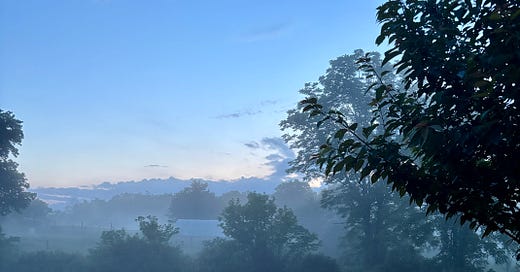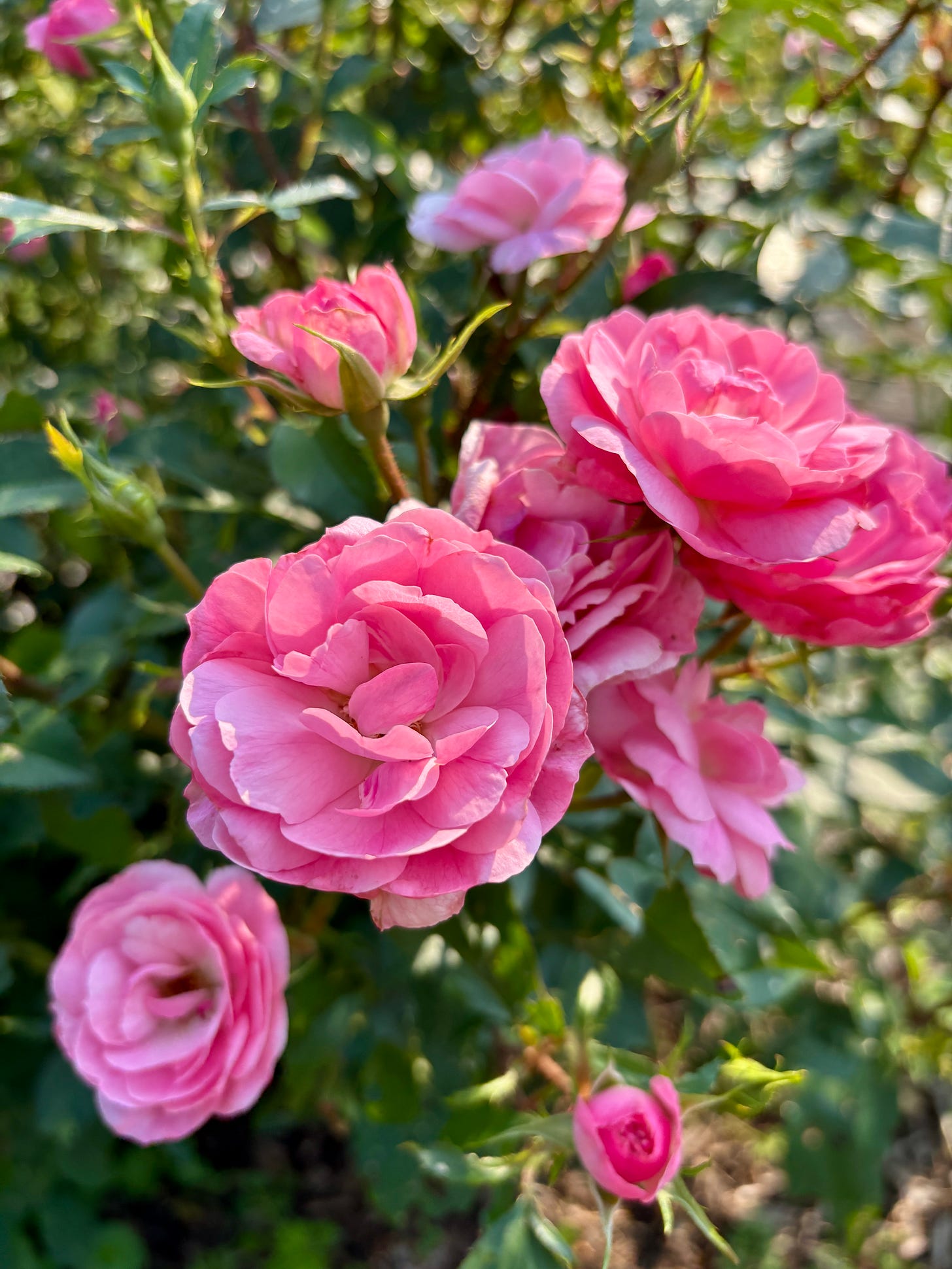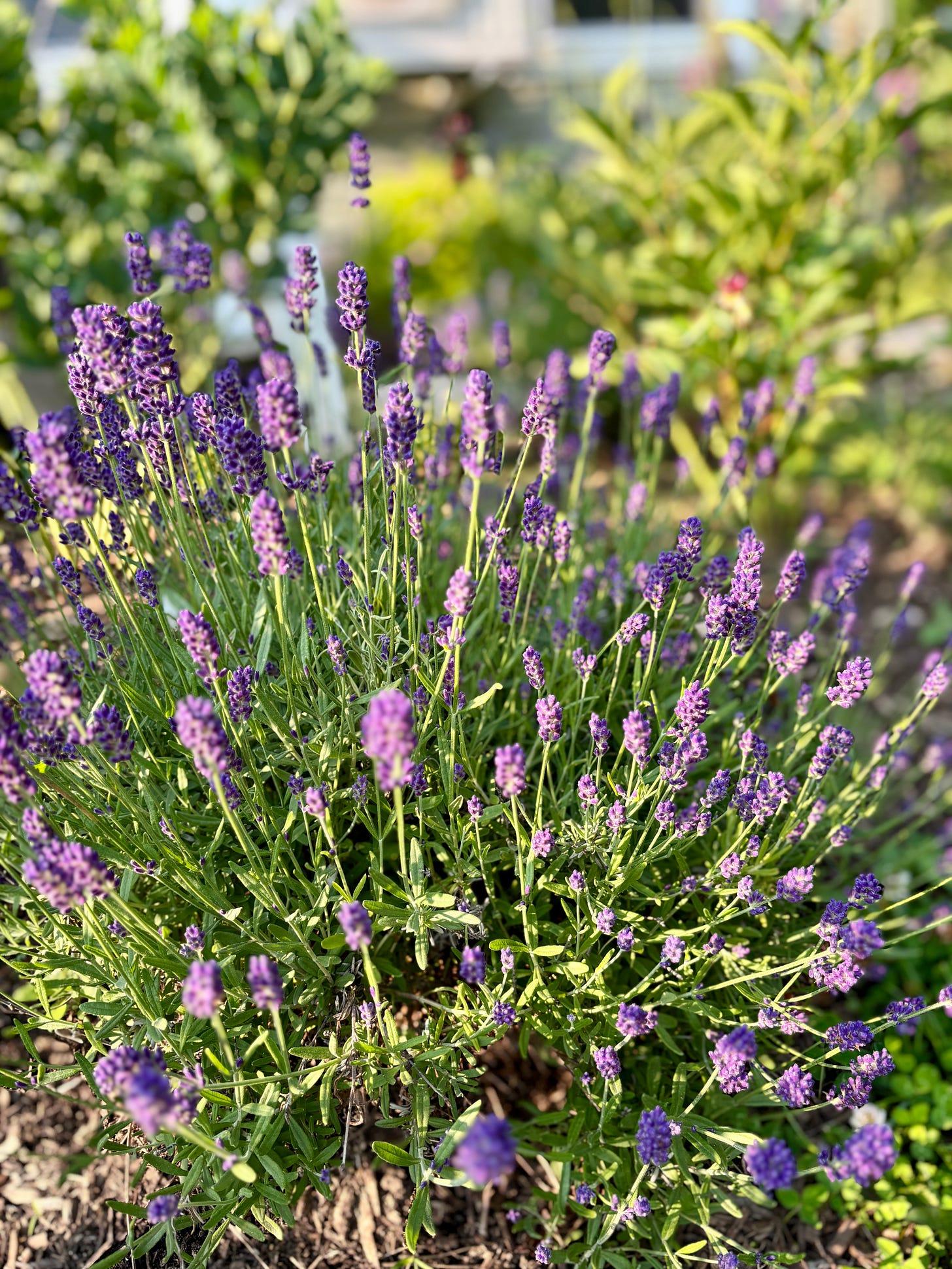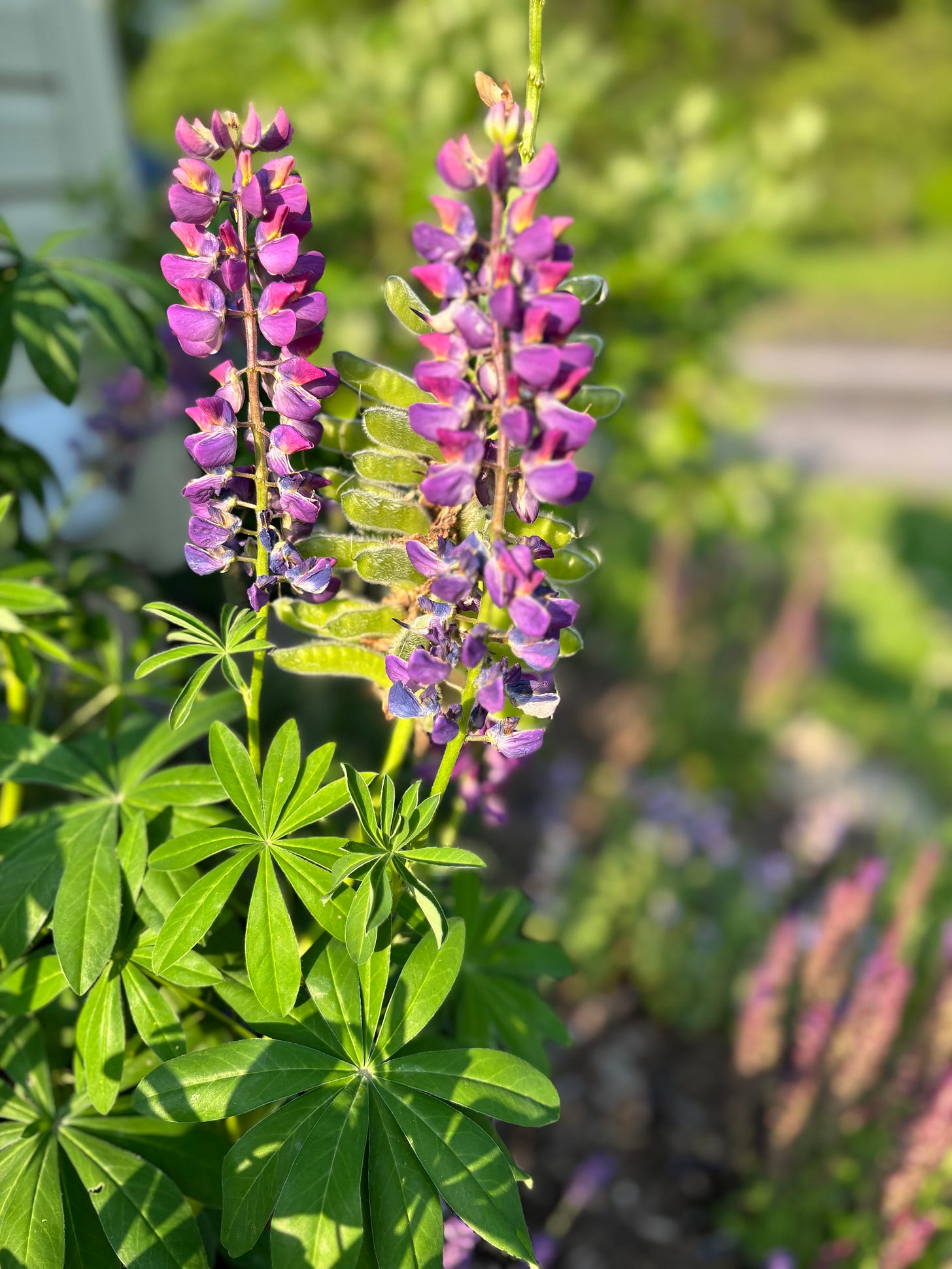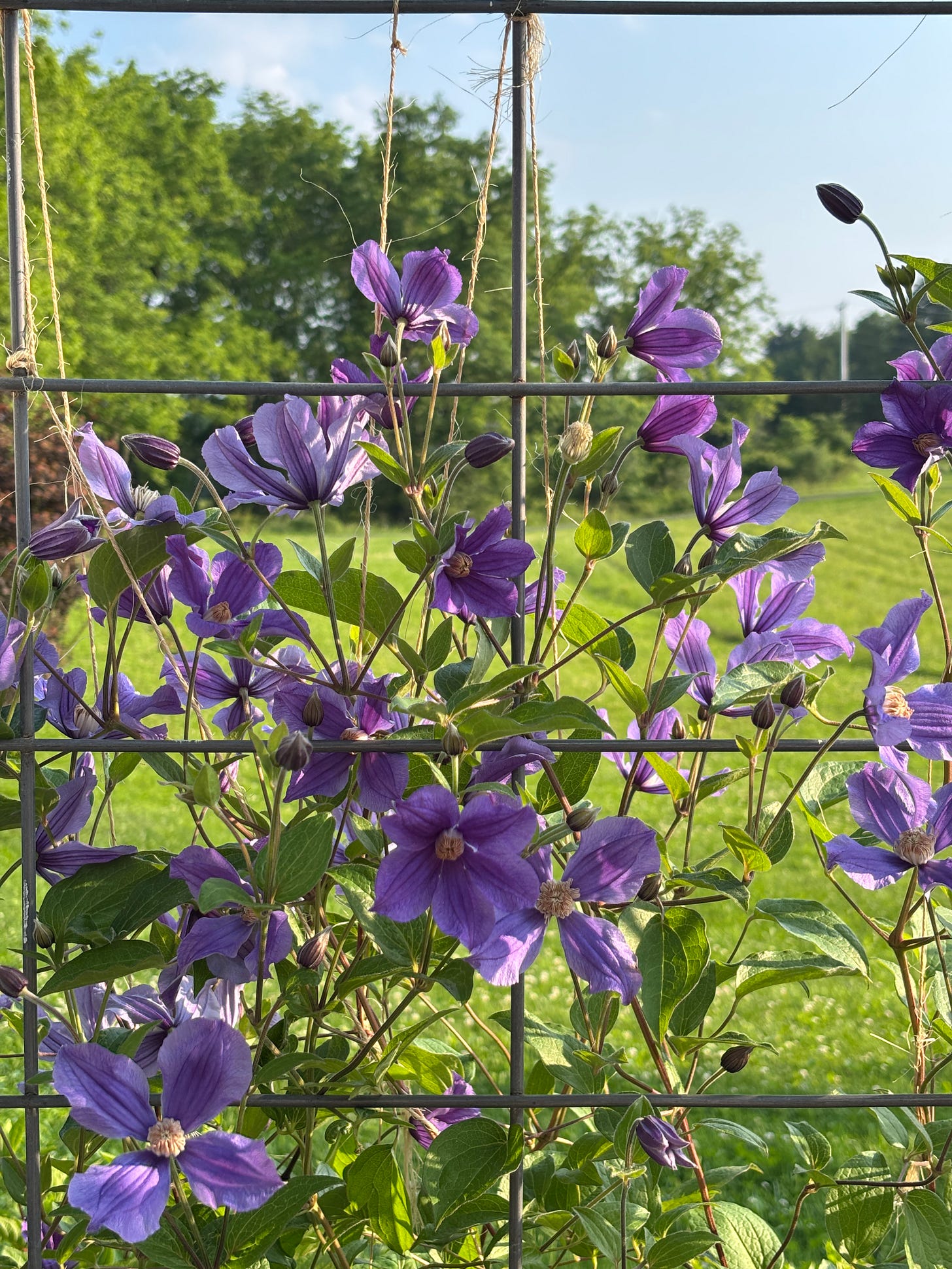In April, when tariffs were announced, then increased, then reduced, then paused, then restarted, then paused again, and the wars, and the wars, and the silent bloodbath of AI, and the horrible things human beings are doing to each other, I found myself drowning in news. All of it doomed.
Business trickled in and then fizzled out. Work got eerily quiet. It’s difficult for CEOs and companies to make strategic decisions when they don’t know the price of goods. In life – real life, where days pass with the rise and fall of the sun – time flows on. There is no pause, although when things get overwhelming, I long for one.
It's been a liminal spring, and now summer. As every writer knows, liminal spaces—the in-between spaces where you’re on the threshold of worlds—are uncomfortable.
After two weeks drowning in bad news, I noticed I was becoming a touch emotionally unhinged. It’s over, I thought. I’m going to lose my business, my house. Shackleton will have to live on the streets—the mean streets of the Hudson Valley.
After unloading my worries on Felice, she told me about a guided meditation called Changing Boxes, led by Dr. Joe Dispenza. In it, you imagine your current reality as a box, and then imagine a new dimension where the problems plaguing you no longer exist.
I listened to the twenty-minute meditation twice. For forty minutes, I imagined my problem, self-centered fear, had been removed. I changed boxes. And in the new box, my mind turned to gratitude. A flock of new thoughts landed, all of them hopeful. This is perhaps what I’ve come to love most about meditation: cleared of noise, the mind bends toward hope.
The meditation was so helpful I did it every day for weeks. Because work was quiet, I had more time, hours of unbroken time to write. With this mental clarity, the thought of spending long stretches at my desk working on a book began to feel like a tangible possibility again.
I also had plenty of clients engaged, and colleagues across sectors in the same situation. One day a friend who also owns a business said, “We just have to find a way to help people.” So simple. And so true.
Meanwhile the weather was warm, so I could spend my mornings writing and my afternoons in the garden, where I’m joyful, taking client meetings as needed.
I don’t have one of those lives where I could (or would want to) close my eyes to the news and shut out the world. But I took the advice I often give people who call in hideous situations and find themselves gorging on news and social media:
Step away from the Internet.
We’ve all read the studies by now. The relentless nature of the news cycle and social media doomscrolling has a catastrophic impact on mental and emotional wellbeing. It’s the phones, friends. Stepping away isn’t just an antidote to stress. It’s an act of reclamation of one’s sovereignty. Of one’s presence. When I’m scrolling, I can’t feel anything. And if I can’t feel anything, I can’t write.
While you’re on Internet recess, you can have someone you trust update you as to the geopolitical and economic devastation unfolding. I go to the gym with a close friend who moved upstate from the city, and sometimes I ask her between squats and deadlifts to give me the day’s news. “What happened so far today? Are we in a nuclear war with Iran now?”
I still check the goings-on, but in doses. Small doses. And even then, I do so on a reward-based system, because I am very dog-like when it comes to bad behaviors. If I don’t establish rituals (habits control you, whereas you control your rituals) I’ll fall into the rabbit hole of ingesting toxic amounts of bad news.
I make it a game: a small reward after accomplishing what matters most. It’s my way of ensuring I’m present, not lost in a digital fog. I give myself a news or social media snack after I’ve done my writing for the day, walked the dog, talked to clients, called friends, worked out, and gardened. Only then do I let myself scroll for a few minutes. Minutes—not hours.
One last thing, before I leave you with some photos of my garden as of late. (Flowers for now, vegetables in July.) Upstate, like much of the northeast, has endured countless weeks of rain. Most of the small talk is about the gray sky, the lousy weather. But thanks to Changing Boxes, my mind reaches toward hope.
Late one night, I stepped outside, and the hay field and trees and flower garden – nature was singing. Thanks to the rain, upstate New York now sounds like the jungle in Costa Rica. The animals and insects are thriving, the flowers, grass, and vegetables are growing so fast I can barely keep up. And my land at night is a song bath. If you sit quietly outside on these warm dark summer nights, you can hear it, too.

